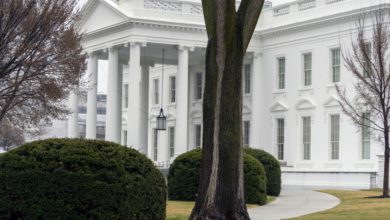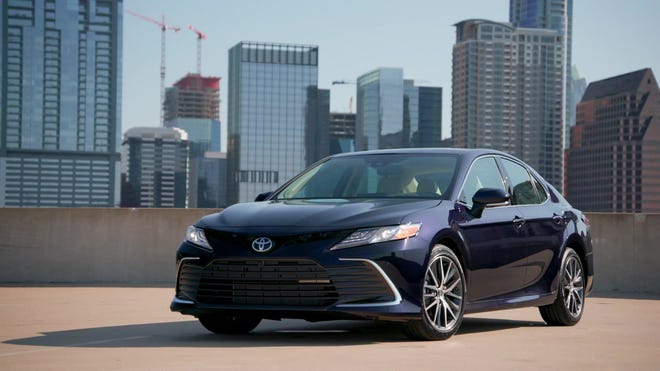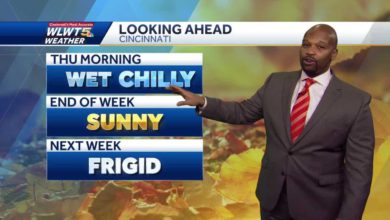
The gates to the "Happiest Place on Earth" will open again on Friday morning for the first time in 412 days — the longest closure for Disneyland in its 65-year history.
Things won't be quite as they were pre-pandemic, as safety measures to help prevent the spread of coronavirus will be in place, including no character hugs and a 25% capacity opening. Friday will mark the first time in more than a year that guests can board rides and attractions — and the new Avengers Campus is set to open in June.
It comes as the park's home state records a rate of 33 cases per 100,000 people, as of Wednesday morning. California's rate is less than a third of the U.S. average of 116 cases, according to the San Jose Mercury News.
Meanwhile, the U.S. is set to vaccinate 100 million Americans fully by the end of this weekend, according to the Centers for Disease Control and Prevention.
Also in the news:
►The world has reported its 150,000,000th coronavirus case, Johns Hopkins University data shows. And the U.S. reported its 575,000th death.
►A record surge in COVID-19 infections in Costa Rica forced the government to announce new restrictions Thursday that will dial back the country’s economic reopening.
►According to recent data from the CDC, about 92% of people who got the Pfizer-BioNTech or Moderna COVID-19 vaccine made it back for their second shot.
►Tucson Democratic Rep. Alma Hernandez, who was fully vaccinated, confirms that she has tested positive for COVID-19.
? Today's numbers: The U.S. has more than 32.28 million confirmed coronavirus cases and 575,000 deaths, according to Johns Hopkins University data. The global totals: Nearly 150.1 million cases and 3.16 million deaths. More than 305.4 million vaccine doses have been distributed in the U.S. and 237.3 million have been administered, according to the CDC. Almost 99.6 million Americans have been fully vaccinated.
? What we're reading: Native American tribes have long struggled with high rates of diabetes. COVID-19 made the problem even more urgent.
Keep refreshing this page for the latest updates. Want more? Sign up for our Coronavirus Watch newsletter for updates to your inbox and join our Facebook group.
New CDC guidelines on wearing masks after vaccination could affect communities of color, experts say
The Centers for Disease Control and Prevention’s new guidelines easing outdoor masking recommendations for fully vaccinated individuals may lead to some unintended consequences, particularly for people of color, health experts say.
The science supports the agency’s new guidelines, but experts say easing mask restrictions may imply that vaccination is now just a matter of choice, and it could undermine urgency to reach vulnerable communities still awaiting access to vaccines.
“The changing perception that these are not issues means that the attention to these populations will likely decrease,” said Rachael Piltch-Loeb, associate research scientist at New York University School of Global Public Health.
Some states already have begun relaxing restrictions.
But many people across the country remain unvaccinated because they don’t have access to the Internet, work more than one job, don’t speak English, experience homelessness, live in rural areas or suffer from chronic health, said Kiran Savage-Sangwan, executive director of the California Pan-Ethnic Health Network. All are conditions that studies show disproportionately affect people of color. Read more here.
– Adrianna Rodriguez
Indian Americans feel helpless as family in India falls ill
From 8,000 miles away, New Jersey resident Radhika Iyengar worries about her 82-year-old mother in Bhopal, India.
Her mother is suffering from COVID-19 but unable to get a hospital bed or an oxygen tank as the pandemic reaches catastrophic levels. Iyengar remains in Millburn, New Jersey, distraught, unable to travel to India with much of the nation on lockdown.
"It's so overwhelming," Iyengar said, amid sobs, in an interview this week. "Every house has COVID, ill people. People are dying in cars, their homes."
As a second wave of the coronavirus ravages India, Indian Americans are trying to reach loved ones, organizing relief and quietly worrying about relatives caught in what has become the world's worst outbreak.
Stories of deaths tangled in bureaucracy and breakdowns have become dismally common in India, where deaths on Wednesday officially surged past 200,000. The true death toll is believed to be far higher. The nation of almost 1.4 billion reported 362,757 new confirmed cases on Wednesday, shattering global records. That pushed the country’s total infections past 17.9 million, second only to the U.S. Health officials have blamed new, more contagious strains of the virus.
"India is experiencing the worst health crisis right now," said Sapna Gupta of Short Hills. "Almost everyone is impacted by the virus. Many are losing their loved ones, and many are not even getting to say goodbye." Read more here.
– Mary Chao, NorthJersey.com
New COVID-19 cases are mostly seen in younger adults
Despite increased COVID-19 vaccinations and an overall decline in infections, San Bernardino County officials said a majority of new cases are being seen in younger people aged 18 to 49.
County data shows that confirmed cases in the age group total 161,680, or more than half of the 295,806 cases reported so far. The median age for coronavirus cases was 37 as of Thursday.
“A considerable number of these individuals, including many who are young and otherwise healthy, will suffer from the coronavirus, and some will require hospitalization,” said Interim Public Health Director Andrew Goldfrach in a statement. “Some will even die — which is heartbreaking when one considers how easy it is to schedule a free vaccination appointment.”
The county’s trend appears to be part of a pattern statewide.
While people aged 18-49 make up about 43% of California’s population, infections in the age group have accounted for greater than 57% — or more than 2 million — of the state’s total confirmed cases, according to the California Department of Public Health.
And the state is not alone. Washington hospital leaders said that a fourth wave of COVID-19 is increasingly loaded with young patients and that some are suffering from more severe disease than earlier in the pandemic, reported The Seattle Times. And in Texas, leaders are reporting that young people are less likely to get vaccinated and are therefore coming down more frequently with COVID.
- Martin Estacio, Victorville Daily Press
Mayor Bill de Blasio says New York City to reopen July 1
New York City, its bars, restaurants and tourist sites will have a "full reopening" on July 1, Mayor Bill de Blasio said Thursday.
"We are ready to bring New York City back fully on July 1st, all systems go, because you've earned it," de Blasio said. He said that Broadway shows might take more time because they had been aiming for a September return, but that "some of the smaller, more intimate shows, we might be looking more like July, August, and we'll move heaven and earth to help them get that done."
De Blasio said he expects at least 400,000 jobs lost to the pandemic to return by year's end. The mayor cited the city's vaccination rate as crucial to the effort, saying 6.4 million New Yorkers have already been jabbed.
The city was among the hardest hit in the early stages of the pandemic, when long lines formed at hospital emergency rooms and ventilators were at a premium. More than 32,000 New Yorkers have died and more than 900,000 have tested positive for the coronavirus.
"This is going to be the summer of New York City," de Blasio said. "We're all going to get to enjoy the city again. And people are going to flock here from all over the country to be a part of this amazing moment in New York City."
Contributing: The Associated Press
Source link









